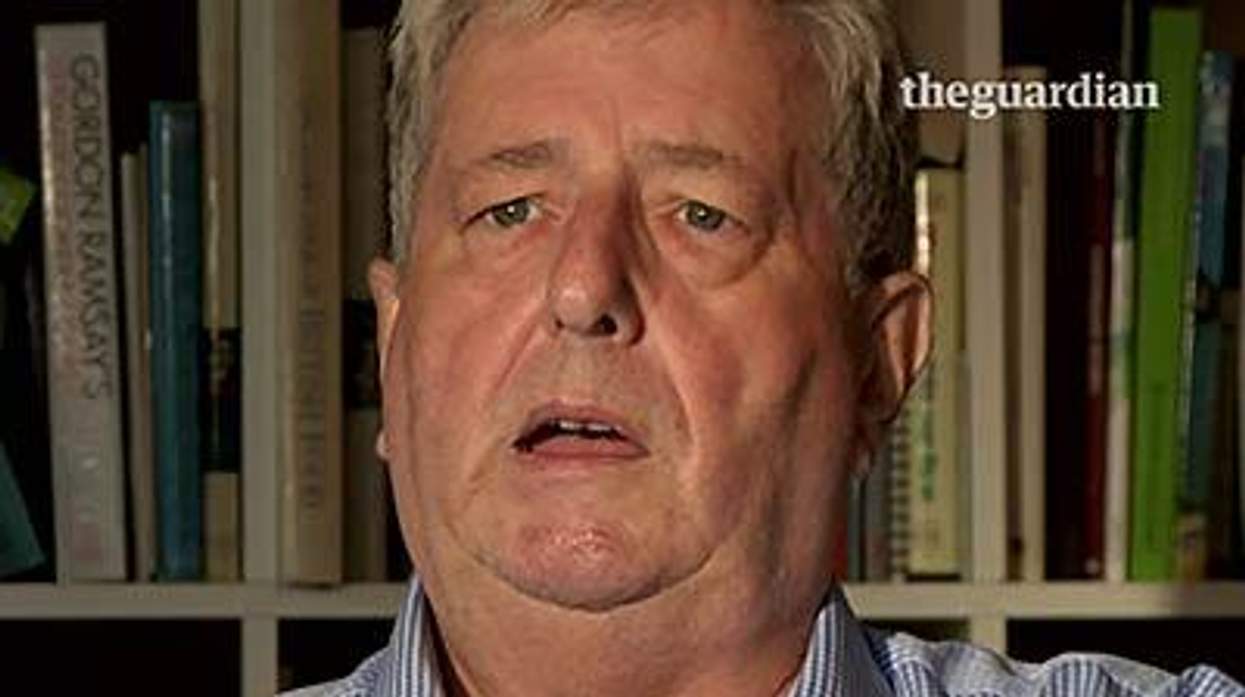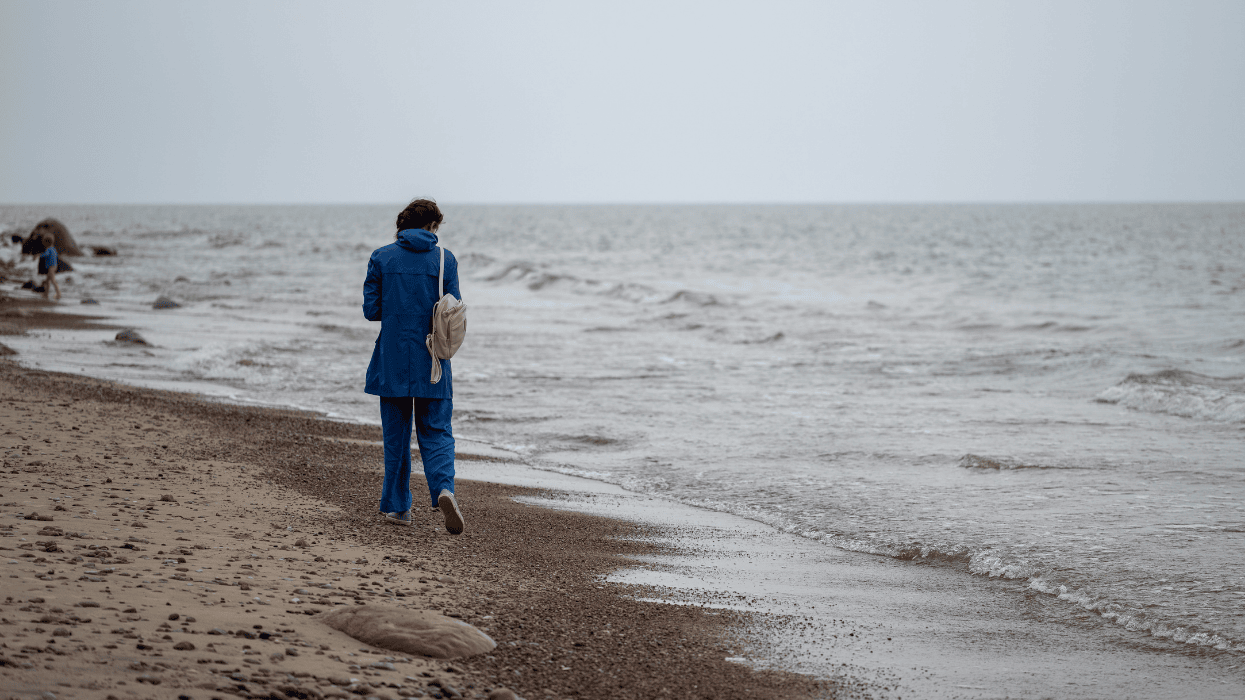A 69-year-old man from England who spent 19 days in a Moroccan prison for being gay says he would go back to save his boyfriend who is still in custody, despite telling The Guardian that the Marrakech prison was "hell on earth."
In a video interview on The Guardian's website, Ray Cole reflected on the terrifying yet legally enshrined homophobia in Morocco that saw he and his partner rushed by plainclothes police officers and arrested while sitting together at a bus stop in Marrakech, calling them "filth" for being gay.
"They went straight-away into insinuating that we were homosexual and that we shouldn't be," Cole says in the moving video, filmed shortly after his return to the U.K. "...They took every opportunity to humiliate us."
Cole is in a relationship with a Moroccan man named Jamal, who remains stuck in Morocco as his British boyfriend works to secure asylum for him. According to BuzzFeed, Jamal was released from prison on bail two days after Cole, pending judgement on the young man's appeal. It is suspected that Jamal is in his 20s, and may be using a psuedonym.
"I love him," a teary-eyed Cole says in the video. After Cole and Jamal were initially held in a cell together and interrogated for 48 hours, Cole says Moroccan officials separated the couple into different cells. Prior to their arrest, Cole and his partner had been vacationing in Morocco for four weeks without incident.
Although Cole's 19 days in prison included enduring the smell of a communal toilet shared among himself and 60 others in the underground holding cell where he was kept, he told The Guardian the most terrifying aspect of his detention was not knowing the whereabouts or safety of his partner.
While Cole said he knew he was likely safe from physical abuse by guards because he is a European, his Moroccan partner was likely not so lucky. Cole speculated that guards were aware that government officials would not want any harm to come to a European citizen, as the country is dependent on European tourism to sustain its economy.
"Nobody knew where I was, nor did I have anyway to tell them because my phone had been taken away," Cole recalled.
After a high-profile media campaign led by his family, Cole was eventually released and returned to his home in the Kent seaside town of Deal, where he is now determined to bring his partner as well. Cole hopes to secure asylum in the U.K. for his partner, since for Jamal, staying in his home nation would mean continued criminalization of his very existence.
The entire affair has caused a slowdown in Morocco's crucially important tourism industry, the backbone of the North African country's economy. What's more, this is just the latest in a series of negative stories in the press about the dangers of vacationing in Morocco.
Even out singer Ricky Martin made his feelings known about the abuses of gay tourists and citizens in Morocco during a recent music festival in the capital city of Rabat.
In 2012 a gay cruise line that had scheduled a docking in the fabled Moroccan city of Casablanca was turned away, despite recieving prior approval to dock there. Local port officials reportedly took issue with the sexual orientation of the cruise-goers, though national officials said they did not order the refusal, and claimed that visitors are never asked about their sexual orientation.
Once celebrated as a relatively tolerant tourist destination -- at least by the comparison to its North African neighbors -- it's clear changes have come to Moroccan tourism, which supports an estimated 500,000 jobs. What is less clear is whether Moroccan authorities will now work to save or cut out Morocco's share of the lucrative gay tourism trade.
Perhaps Morocco World News opinion page writer Colin Kilkelly put it most succinctly in an op-ed published last weekend with the headline "Moroccan Tourism Sleep Walks Into a Crisis..."
"The failure to anticipate a clash between Western respect for personal liberty and Islamic moral precepts has made gay people realize that they will be targeted if they come to Marrakech, and it that is better for them not to come and risk prison in appalling conditions and an incomprehensible legal system," Kilkelly writes. "Islamist politicians like Minister of Justice Mustapha Ramed have made it clear that homosexuals are not welcome."
According to Kilkelly, the Cole affair actually caught Moroccan tourism authorities by surprise. Kilkelly, a 30-year veteran journalist in the region, has a theory about how that happened -- and it's less about a drastic shift toward religious findamentalism than it is a possible blind spot around Western media for the French- and Arabic-speaking Moroccan media sphere.
"Could it be that Morocco's closed media scene in Arabic and French and a concentration only on local Moroccan news make Morocco unable to foresee Western reactions to oppressive policing methods?" Kilkelly asks.
Rectifying the damage done by recent antigay incidents lies with the courts in Morocco, rather than the media, contends Kilkelly.
"Moroccoo's reputation as a country of tolerance has taken a severe hit," he writes. "Many believe that the ambiguous law criminalizing sexual relations outside marriage needs to be clarified and revised."




































































Charlie Kirk DID say stoning gay people was the 'perfect law' — and these other heinous quotes